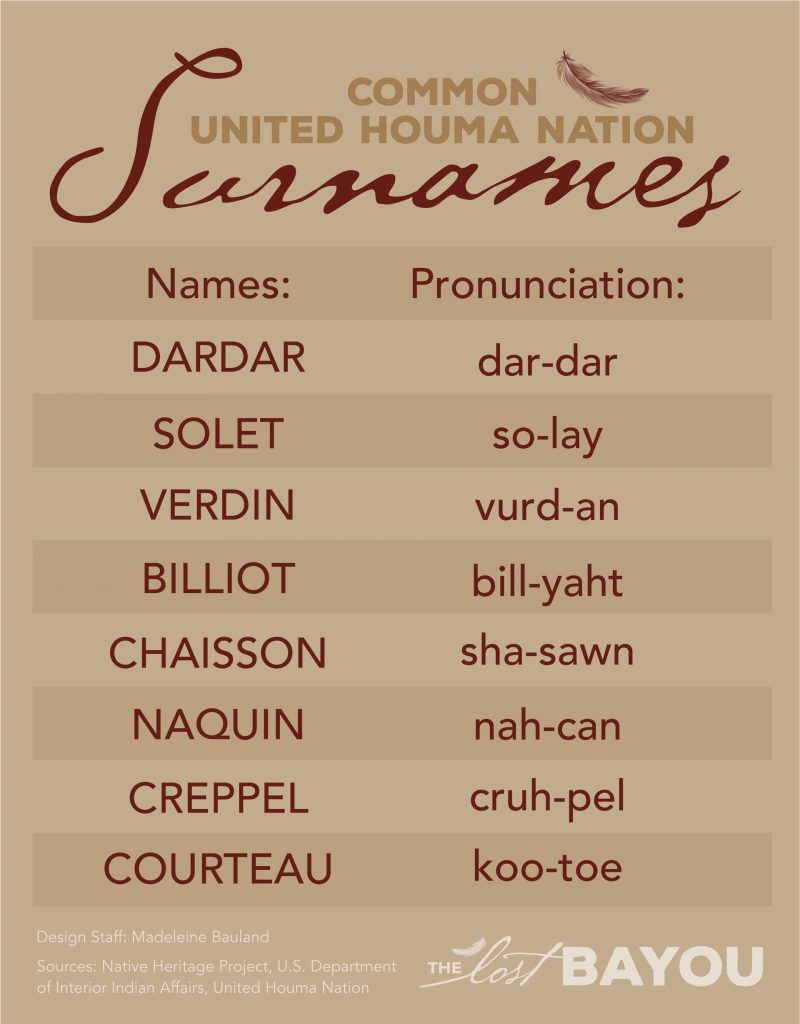By Robbie Trosclair, staff writer
For the seasons of life, the United Houma Nation combines their traditions with the culture of the surrounding French Cajuns. Traditions like smudging, smoking pipes and prayer songs are integrated with infant baptism baptism, marriage feasts and wedding masses.
And in all these traditions, music accompanies each life event. The songs vary in purpose as they have different songs for each event and the songs have been passed down through the generation. Although they don’t all have names, they all have the name of “Wakonda” or creator.
Chief August “Cocoa” Creppel says he’s lucky to have the gift of singing to help him and his people enjoy life.
“I’m just sharing the gift that God gave me,” says Creppel.
For birth, it all starts with a name. The child is given its government name, but the elders of the tribe, or the family, also give them a name. For Creppel, his Native name translates to Sea Eagle Dances. He gave his daughter the name Sunrise Eagle. The birth of a child also calls for a large celebration with singing, dancing and a feast.
Along with his Indigineous traditions, Creppel and many other UHN tribal citizens are Christians. For weddings, Creppel does the standard vows as a pastor, but also introduces more Indigienous traditions.
The married couple will receive Pendleton blankets, which are very important gifts that Native Americans give during celebrations. The couple is also smudged with a mixture of sage, cedar, tobacco and sweet grass, four ingredients to represent the four elements from the four directions where we all come from. The four directions of course being north, according to Creppel brings cold, cleansing fresh air. The east brings new beginnings with the sunrise, the south brings the heat and warmth of the day, the west brings the end of the day
Charlie Duthu says he has a Calumet, a peace pipe, which was given to him as a gift. It’s made of twisted wood and adorned with beads and an eagle head and traditionally was smoked for ceremonial purposes. Creppel said that through smoking the pipe together, no lies should be told. Duthu let a friend use his Calumet to smoke with his bride at the wedding.
Along with the gifts, the UHN also celebrates through Native American prayer songs dedicated to Wakonda, the creator. The men feed women meat while the women feed men berries. This tradition goes back so far so that husband and wife would each gather their gift as well.
For deaths in the tribe, Creppel sees it as a bittersweet moment.
“When a person dies you don’t get to talk to them, see them, kiss them goodnight or kiss them good morning,” says Creppel.
It’s always sad, Creppel says, but as a believer, he knows that they’re with Jesus now. Creppel also has a whistle made from an eagle bone. It is blown in the direction of the four winds in collaboration with prayer songs and smudging. The four winds come up so often because it’s the circle of life, says Creppel.
Duthu remembers a time when death was a little different. When he was younger, women were inside the home with the body and the men would be outside. Although he doesn’t remember why, Janie Luster was able to explain that it may have been due to the gender norms at the time. Women stayed inside to do housework and men stayed outside to do traditionally masculine tasks at the time.
Creppel says that these celebrations of life were harder to do with the COVID-19 pandemic, even having his own wedding shortened because of it. However, the UHN was able to overcome that obstacle and look forward to many more celebrations of life in the future.

